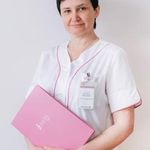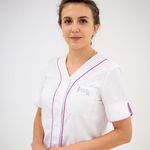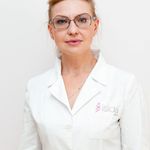







There are quite a number of types of IVF programs:
etc.
The feasibility of using a particular IVF program is determined by the doctor during a detailed examination of the married couple. He also gives spouses detailed information about the nuances of a particular type of IVF.
The main stages of the IVF program are:
Diagnosis of the reproductive health of future parents of the child
Before being included in the IVF program, the couple is asked to undergo a thorough examination in order to timely detect temporary or permanent contraindications for in vitro fertilization and timely correction of these conditions. If patients come to the clinic with the latest results of all necessary examinations, this IVF program item may be reduced or eliminated. This reduces the cost of the program.
Ovulation stimulation
It is carried out with the purpose of receiving not one, as it most often happens in the natural cycle, but several eggs. During this stage, the patient is administered special drugs that stimulate follicle growth. The presence of several eggs allows the embryologist to select the best of them for further fertilization. The duration of this stage is from 10 to 14 days.
In some cases, ovulation stimulation is not performed, and the only naturally mature egg cell is punctured in a woman during ovulation. The IVF program in the natural cycle is conducted in cases where a woman does not want to expose her body to the risks associated with hormonal stimulation; if hormonal stimulation is contraindicated to her; as well as in cases where the hormonal stimulation carried out in previous IVF attempts did not produce a sufficient number of oocytes suitable for fertilization.
Puncture of follicles and obtaining oocytes
Under the control of an ultrasound machine with a very thin needle, the doctor takes a sample of mature eggs and transmits them to an embryology laboratory. This procedure is painless, as it is performed under anesthesia. The specialist assesses the degree of maturity of the eggs produced, selects for fertilization oocytes, in which a small cell is clearly visible - the polar body (such oocytes are called M 2-oocyte). All manipulations must be carried out very quickly - within 3-4 hours after the puncture the best eggs are fertilized in the laboratory using the ICSI method.
ICSI fertilization
ICSІ is an abbreviation of the English term Intra Cytoplasmic Sperm Inionіon, which translates literally as “the introduction of a spermatozoon into the oocyte cytoplasm”. During fertilization of the egg by the ICSI method, the sperm cell is injected directly into the cytoplasm of the egg. Morphologically, the best and most mobile spermatozoon is chosen for fertilization. He is undergoing the procedure of immobilization and activation for the fertilization process. During the manipulation of the egg is fixed so that the injection needle does not touch the genetic apparatus of the egg.
After 16-18 hours, the effectiveness of fertilization is assessed. And if embryologists determine that the fertilization procedure was not sufficiently effective (one or three pronuclei are observed in the middle of the cell), the zygote — the so-called fertilized egg 16-18 hours after ICSI — is excluded from the IVF program. Embryologists closely monitor the development of a fertilized egg for five days. After this period, the best of the obtained embryos is either transferred to the uterus of the future woman, or, if the genetic diagnostic method NGS is used, it is cryoconserved until the results of the analysis are obtained.
Conducting NGS genetic analysis (as desired by the patient)
NGS analysis is a preimplantation genetic screening that identifies genetic pathologies of embryos. The accuracy of embryo testing for chromosomal and monogenic diseases is 99.9%. The process is fully automated, which eliminates the impact of the human factor. This analysis increases the chances of pregnancy in the IVF program on average by 2.5 times. In the ISIDA clinic, more than 25% of IVF cycles are performed using the NGS method.
Embryo transfer to the uterine cavity
This manipulation is carried out under the control of ultrasound, it does not require anesthesia.
Pregnancy diagnosis
Two weeks after the embryo is transferred to the uterus of the expectant mother, a blood test is performed at the clinic to determine the level of hCG (human chorionic gonadotropin) in the blood and to evaluate the program's performance. A positive blood test for HCG indicates that the IVF program was successful.
The final diagnosis of the onset of pregnancy occurs with an ultrasound scan 4 weeks after embryo transfer.
Further during pregnancy is no different from the usual. The use of in vitro fertilization does not affect delivery in any way.
The ISIDA clinic has developed several IVF programs. The doctor will help you to choose the most suitable for you after a thorough analysis of the anamnesis.
What procedures are available at ISIDA-IVF?
How many medical staff are there at ISIDA-IVF and what accreditations do they have?
In order for a pregnancy to occur naturally, the ovary releases an egg at ovulation which travels through the Fallopian tube where it meets the sperm and is then fertilized. The fertilized egg enters the uterine cavity where it implants in the thickened lining of the uterus (the endometrium).
Through IVF treatment (In Vitro Fertilisation), the ovaries are stimulated to produce a number of eggs which are then collected and mixed with sperm in the laboratory; this then allows fertilization to occur. The developing embryos are monitored closely and the healthiest embryos are then transferred into the uterus to allow implantation to occur.
IVF is a series of procedures performed to treat infertility especially to women over the age of 40. It can also be used as a treatment for certain health conditions such as Ovulation Disorder, Premature Ovarian Failure, Fallopian Tube Damage, Endometriosis, Unexplained Infertility, Uterine Fibroids, Impaired sperm production or function, Previous tubal sterilization or removal, Genetic Disorder, or Fertility preservation for cancer patients.
Although the In Vitro Fertilization (IVF) isn't a surgery procedure, it consists of specific methods that call for a recuperation period. After the embryo has been inserted, it's common for medical professionals to advise a brief rest interval. The human body requires a span of adjustment in anticipation of possible conception, hence the importance of granting it the needed time.
The actual recovery from the specific stages of the embryo implantation and egg collection is typically rapid, generally inside a day or possibly two. However, the actual recuperation and waiting period expands to roughly a fourteen-day period following the embryo insertion - infamously known as the "two-week wait". This timeframe marks the potential start ofearly pregnancy stages, and can serve as both a physical and emotional healing process from the procedure.
The hormone-based medications administered as part of the In Vitro Fertilization (IVF) can also bring about symptoms such as fluid retention, stomach ache, mood fluctuations, and sensitivity where the injection is administered. These symptoms are apt to decrease as your body accustoms to the hormonal variation, but they could add to the duration of the recovery phase.
Assessing the effectiveness of the In Vitro Fertilization (IVF) requires a comprehensive analysis. The effectuality rates can be substantially impacted by various elements, such as the patient's age and overall wellness, the reason behind infertility, the specific procedure implemented, and lifestyle elements like dietary habits and physical activity routines. 40% of Women under the age of 35 will be successful and 25% of women aged 36 to 41 will be successful and only 4% over the age of 42 will be successful. You must also understand that pregnancy rates are not exactly the same as the live birth rate.
Moreover, the aptitude and proficiency of the involved healthcare experts should also be factored in. For example, the patient's age is a vital factor in determining success rates, with younger women generally having healthier egg cells, thereby elevating the possibility of IVF success. Essentially, the capabilities of the clinic, the technology within the lab, and the embryologist's professional expertise collectively contribute to the outcome of the procedure. Therefore, taking these aspects into account, it becomes crucial to opt for a clinic recognized for its high success rates.








There are quite a number of types of IVF programs:
etc.
The feasibility of using a particular IVF program is determined by the doctor during a detailed examination of the married couple. He also gives spouses detailed information about the nuances of a particular type of IVF.
The main stages of the IVF program are:
Diagnosis of the reproductive health of future parents of the child
Before being included in the IVF program, the couple is asked to undergo a thorough examination in order to timely detect temporary or permanent contraindications for in vitro fertilization and timely correction of these conditions. If patients come to the clinic with the latest results of all necessary examinations, this IVF program item may be reduced or eliminated. This reduces the cost of the program.
Ovulation stimulation
It is carried out with the purpose of receiving not one, as it most often happens in the natural cycle, but several eggs. During this stage, the patient is administered special drugs that stimulate follicle growth. The presence of several eggs allows the embryologist to select the best of them for further fertilization. The duration of this stage is from 10 to 14 days.
In some cases, ovulation stimulation is not performed, and the only naturally mature egg cell is punctured in a woman during ovulation. The IVF program in the natural cycle is conducted in cases where a woman does not want to expose her body to the risks associated with hormonal stimulation; if hormonal stimulation is contraindicated to her; as well as in cases where the hormonal stimulation carried out in previous IVF attempts did not produce a sufficient number of oocytes suitable for fertilization.
Puncture of follicles and obtaining oocytes
Under the control of an ultrasound machine with a very thin needle, the doctor takes a sample of mature eggs and transmits them to an embryology laboratory. This procedure is painless, as it is performed under anesthesia. The specialist assesses the degree of maturity of the eggs produced, selects for fertilization oocytes, in which a small cell is clearly visible - the polar body (such oocytes are called M 2-oocyte). All manipulations must be carried out very quickly - within 3-4 hours after the puncture the best eggs are fertilized in the laboratory using the ICSI method.
ICSI fertilization
ICSІ is an abbreviation of the English term Intra Cytoplasmic Sperm Inionіon, which translates literally as “the introduction of a spermatozoon into the oocyte cytoplasm”. During fertilization of the egg by the ICSI method, the sperm cell is injected directly into the cytoplasm of the egg. Morphologically, the best and most mobile spermatozoon is chosen for fertilization. He is undergoing the procedure of immobilization and activation for the fertilization process. During the manipulation of the egg is fixed so that the injection needle does not touch the genetic apparatus of the egg.
After 16-18 hours, the effectiveness of fertilization is assessed. And if embryologists determine that the fertilization procedure was not sufficiently effective (one or three pronuclei are observed in the middle of the cell), the zygote — the so-called fertilized egg 16-18 hours after ICSI — is excluded from the IVF program. Embryologists closely monitor the development of a fertilized egg for five days. After this period, the best of the obtained embryos is either transferred to the uterus of the future woman, or, if the genetic diagnostic method NGS is used, it is cryoconserved until the results of the analysis are obtained.
Conducting NGS genetic analysis (as desired by the patient)
NGS analysis is a preimplantation genetic screening that identifies genetic pathologies of embryos. The accuracy of embryo testing for chromosomal and monogenic diseases is 99.9%. The process is fully automated, which eliminates the impact of the human factor. This analysis increases the chances of pregnancy in the IVF program on average by 2.5 times. In the ISIDA clinic, more than 25% of IVF cycles are performed using the NGS method.
Embryo transfer to the uterine cavity
This manipulation is carried out under the control of ultrasound, it does not require anesthesia.
Pregnancy diagnosis
Two weeks after the embryo is transferred to the uterus of the expectant mother, a blood test is performed at the clinic to determine the level of hCG (human chorionic gonadotropin) in the blood and to evaluate the program's performance. A positive blood test for HCG indicates that the IVF program was successful.
The final diagnosis of the onset of pregnancy occurs with an ultrasound scan 4 weeks after embryo transfer.
Further during pregnancy is no different from the usual. The use of in vitro fertilization does not affect delivery in any way.
The ISIDA clinic has developed several IVF programs. The doctor will help you to choose the most suitable for you after a thorough analysis of the anamnesis.
What procedures are available at ISIDA-IVF?
How many medical staff are there at ISIDA-IVF and what accreditations do they have?














There are quite a number of types of IVF programs:
etc.
The feasibility of using a particular IVF program is determined by the doctor during a detailed examination of the married couple. He also gives spouses detailed information about the nuances of a particular type of IVF.
The main stages of the IVF program are:
Diagnosis of the reproductive health of future parents of the child
Before being included in the IVF program, the couple is asked to undergo a thorough examination in order to timely detect temporary or permanent contraindications for in vitro fertilization and timely correction of these conditions. If patients come to the clinic with the latest results of all necessary examinations, this IVF program item may be reduced or eliminated. This reduces the cost of the program.
Ovulation stimulation
It is carried out with the purpose of receiving not one, as it most often happens in the natural cycle, but several eggs. During this stage, the patient is administered special drugs that stimulate follicle growth. The presence of several eggs allows the embryologist to select the best of them for further fertilization. The duration of this stage is from 10 to 14 days.
In some cases, ovulation stimulation is not performed, and the only naturally mature egg cell is punctured in a woman during ovulation. The IVF program in the natural cycle is conducted in cases where a woman does not want to expose her body to the risks associated with hormonal stimulation; if hormonal stimulation is contraindicated to her; as well as in cases where the hormonal stimulation carried out in previous IVF attempts did not produce a sufficient number of oocytes suitable for fertilization.
Puncture of follicles and obtaining oocytes
Under the control of an ultrasound machine with a very thin needle, the doctor takes a sample of mature eggs and transmits them to an embryology laboratory. This procedure is painless, as it is performed under anesthesia. The specialist assesses the degree of maturity of the eggs produced, selects for fertilization oocytes, in which a small cell is clearly visible - the polar body (such oocytes are called M 2-oocyte). All manipulations must be carried out very quickly - within 3-4 hours after the puncture the best eggs are fertilized in the laboratory using the ICSI method.
ICSI fertilization
ICSІ is an abbreviation of the English term Intra Cytoplasmic Sperm Inionіon, which translates literally as “the introduction of a spermatozoon into the oocyte cytoplasm”. During fertilization of the egg by the ICSI method, the sperm cell is injected directly into the cytoplasm of the egg. Morphologically, the best and most mobile spermatozoon is chosen for fertilization. He is undergoing the procedure of immobilization and activation for the fertilization process. During the manipulation of the egg is fixed so that the injection needle does not touch the genetic apparatus of the egg.
After 16-18 hours, the effectiveness of fertilization is assessed. And if embryologists determine that the fertilization procedure was not sufficiently effective (one or three pronuclei are observed in the middle of the cell), the zygote — the so-called fertilized egg 16-18 hours after ICSI — is excluded from the IVF program. Embryologists closely monitor the development of a fertilized egg for five days. After this period, the best of the obtained embryos is either transferred to the uterus of the future woman, or, if the genetic diagnostic method NGS is used, it is cryoconserved until the results of the analysis are obtained.
Conducting NGS genetic analysis (as desired by the patient)
NGS analysis is a preimplantation genetic screening that identifies genetic pathologies of embryos. The accuracy of embryo testing for chromosomal and monogenic diseases is 99.9%. The process is fully automated, which eliminates the impact of the human factor. This analysis increases the chances of pregnancy in the IVF program on average by 2.5 times. In the ISIDA clinic, more than 25% of IVF cycles are performed using the NGS method.
Embryo transfer to the uterine cavity
This manipulation is carried out under the control of ultrasound, it does not require anesthesia.
Pregnancy diagnosis
Two weeks after the embryo is transferred to the uterus of the expectant mother, a blood test is performed at the clinic to determine the level of hCG (human chorionic gonadotropin) in the blood and to evaluate the program's performance. A positive blood test for HCG indicates that the IVF program was successful.
The final diagnosis of the onset of pregnancy occurs with an ultrasound scan 4 weeks after embryo transfer.
Further during pregnancy is no different from the usual. The use of in vitro fertilization does not affect delivery in any way.
The ISIDA clinic has developed several IVF programs. The doctor will help you to choose the most suitable for you after a thorough analysis of the anamnesis.
What procedures are available at ISIDA-IVF?
How many medical staff are there at ISIDA-IVF and what accreditations do they have?
CONTACT SUCCESSFUL